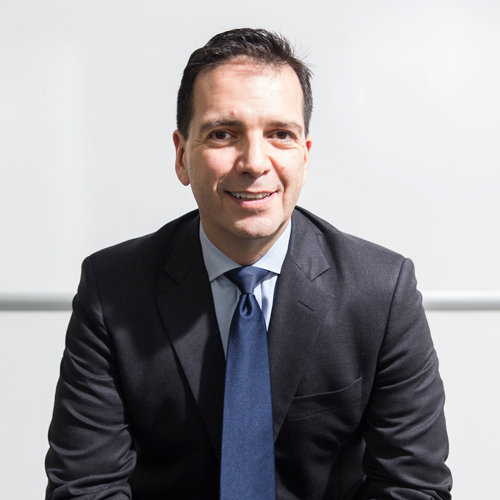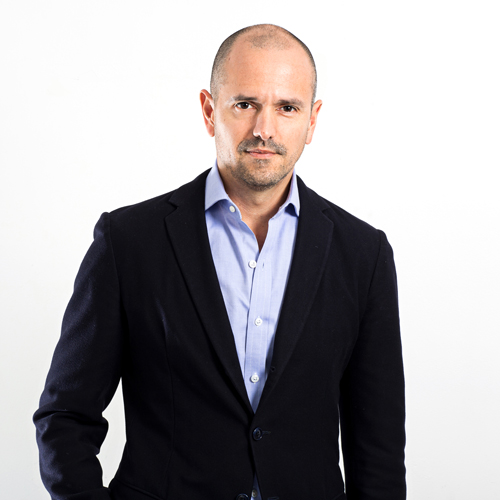2015 was a year of diving headfirst into new opportunities for Myrna Soto. The leading Latina executive and cybersecurity expert stepped into a global role at Comcast, where she is now responsible for leading teams across the entire $74.5 billion organization to unite critical security programs with strategic business goals. She took another big step last January, when after years of service on private and nonprofit boards, she joined the board of directors of public energy company CMS Energy/Consumers Energy Corporation (NYSE: CMS). Not only is Soto leveraging her tech expertise to help the energy giant navigate challenging technology and security issues, she’s also drawing upon her experience in leadership at the largest broadcasting and cable company in the world to help guide CMS and their executive management team.
You had an extremely busy year last year. How have you managed all of the changes?
It’s all positive, so it’s very exciting. Being excited makes it all easier.
How different is your new role at Comcast from what you were doing previously?
There’s some overlap, but I’ve been elevated to serve a broader scope of the enterprise. I had security oversight for the cable business and some integrated areas, but now I am concentrating on strategy, architecture, and technology risks for the entire global organization. We’ve done some acquisitions of companies such as Strata and FreeWheel and are moving forward with our own well-known platforms and capabilities. We’re always focusing on customer experience, so there’s always a lot going on here.
Your previous role required a lot of travel. Will that continue?
I expect to pull out my passport a little more, actually, since we have international assets that are growing.
In the United States, I’ll mostly split time between the coasts.
The other big change for you in 2015 came when you joined the board at CMS Energy Corporation. How did that happen?
It came after a yearlong process of interviewing and the associated search and governance process. It’s been a tremendous experience, and I have been wanting to make a move like this for a long time. Serving on a publicly traded board was a coveted career progression for me. It’s a great way to combine my executive experience and my life experience to help make a difference in the corporate world. I’m loving the chance to steer and guide a company around strategy, corporate governance, and leadership succession planning.
How similar is board membership to an executive role in a company like Comcast?
They’re very different. One is about leading, managing, and executing for a company, and the other is about challenging and advising those leaders in order to help them assess and consider things they might not consider without your input. Executives lead teams to drive results. Board members have to pressure-test strategies and push the management team to think about new possibilities. I’m impressed that CMS understood the common elements and adjacencies between running a global media and technology company such as Comcast and running a utility.
What do you think they saw in you?
There’s a lot of adjacencies in the business environment, regulatory, and business models. It’s similar around delivery of services and customer experience. Secondly, I’m sure my background in cybersecurity was a critical factor to CMS because it’s so important to have a handle on those issues these days.
Can you explain why that is?
There’s more at stake than ever before. Companies and brands that have massive security incidents might never recover. Comcast has had cybersecurity on its board docket for many years, but other brands are still playing catch-up.
Most corporations stick to their industry when selecting board members. Others fill their boards with lawyers and retired CEOs. Do you feel singled out on the board of CMS?
Never. I think that’s how the boardroom is changing. Boards are wanting to add people from outside industries and people with varied backgrounds. I would also argue that each board member needs to have broad expertise, regardless of industry. Stakeholders are looking to the board to keep the company responsible and compliant in every area. Every board member is now responsible for understanding a myriad of topics, including cybersecurity. We’re in a digital age, and these issues are only becoming more important. Technology and security are front-and-center in every organization, so managing these issues can no longer fall to just one person.
What’s your biggest takeaway from year one?
I am impressed by the sheer impact the corporate board has. It’s not symbolic. You’re not just sitting in a room and helping someone keep the lights on. The board is involved in charting the course for the corporation in terms of investments and leadership. I’m on the audit committee and the governance and public responsibility committee for CMS, and those have been good matches for me.
Has your overall approach to the boardroom changed at all?
If anything it’s been validated. I still believe strongly that we need to focus on developing the next generation of corporate directors, and believe that cybersecurity is a board-level imperative. There still exists a huge opportunity for diversity on boards in terms of gender, ethnicity, and skill sets. And current board members need to realize more that we can make an impact outside of our topical areas of expertise. One of my proudest accomplishments is that I’ve influenced the strategy of CMS around customer experience—not just in cybersecurity. My knowledge and experience stems from Comcast’s commitment to customer experience. We have made our customer experience a top priority and it remains top of mind when I sit in the boardroom at CMS as well. On the flip side, what I do at CMS inherently benefits my work at Comcast, as it makes me a more well-rounded executive. If you want to be a board member and you’re a sitting executive, you have to have the support of your company, and thankfully, I do.
How have you been accepted as a Latina?
I’m one of three women on the 12-member board at CMS . . . but I’m the only Hispanic. What I feel is that my ethnicity generates value for them because I have the opportunity to reflect a portion of their customer base that has been underrepresented in their boardroom.
Do you feel a responsibility to help increase diversity?
Only in a natural way. If you have enough diversity in the pool of qualified candidates, the boardroom will become more diverse. I’m not in favor of forcing a particular person into the boardroom just to do it. No Hispanic, nor any person, wants to get a spot on the board just for being from a population considered diverse. We want the spot because we’re qualified. Nobody at CMS focused on the fact that I am Hispanic, but their search and their requirements were never about that. Their interest in me was because of my experience and tech leadership. What we need to do, though, is make sure we are making our qualified and interested minority board candidates known and that they are given the opportunity to be considered.
These new roles represent more work for you. How do you balance work and life?
I know it’s not a popular thing to say, but everyone talks about the work/life balance, when for me it’s more about work/life choices. I choose to extend myself, to serve as an example. I aspire to board service knowing it’s going to require extra time, energy, and effort . . . but I make that choice. My role at Comcast was elevated, and I have to be able to balance the capacity so that I can serve both my company and commit to my board responsibilities well. I’ve chosen to remain vice president of the Hispanic IT Executive Council (HITEC), but I’ve had to step down from other advisory boards. I always view these choices as positive because they allow me to open the door for someone else to fill those positions. Someone else can get the experience I’ve had. It would be selfish of me to keep my big job, all of my advisory boards, my nonprofit boards, and my public board and think that’s okay. Sure, I’m busy now, but I’m busy with things that I chose in this chapter of my life.
What advice would you give others aspiring to board service?
Don’t limit yourself to your industry alone. Think about how your skills transfer. Make sure your personal values align to any company you’re considering. You become personally liable for what the board votes on and approves. If your values are in conflict with those of the company, it’s not going to end well.
What are you focused on now that you have achieved your goal of public board service?
Comcast has over 50 business entities, and I’m working on a holistic security strategy for every single one of them. I’m excited and ready for the challenge that lies ahead in 2016.

